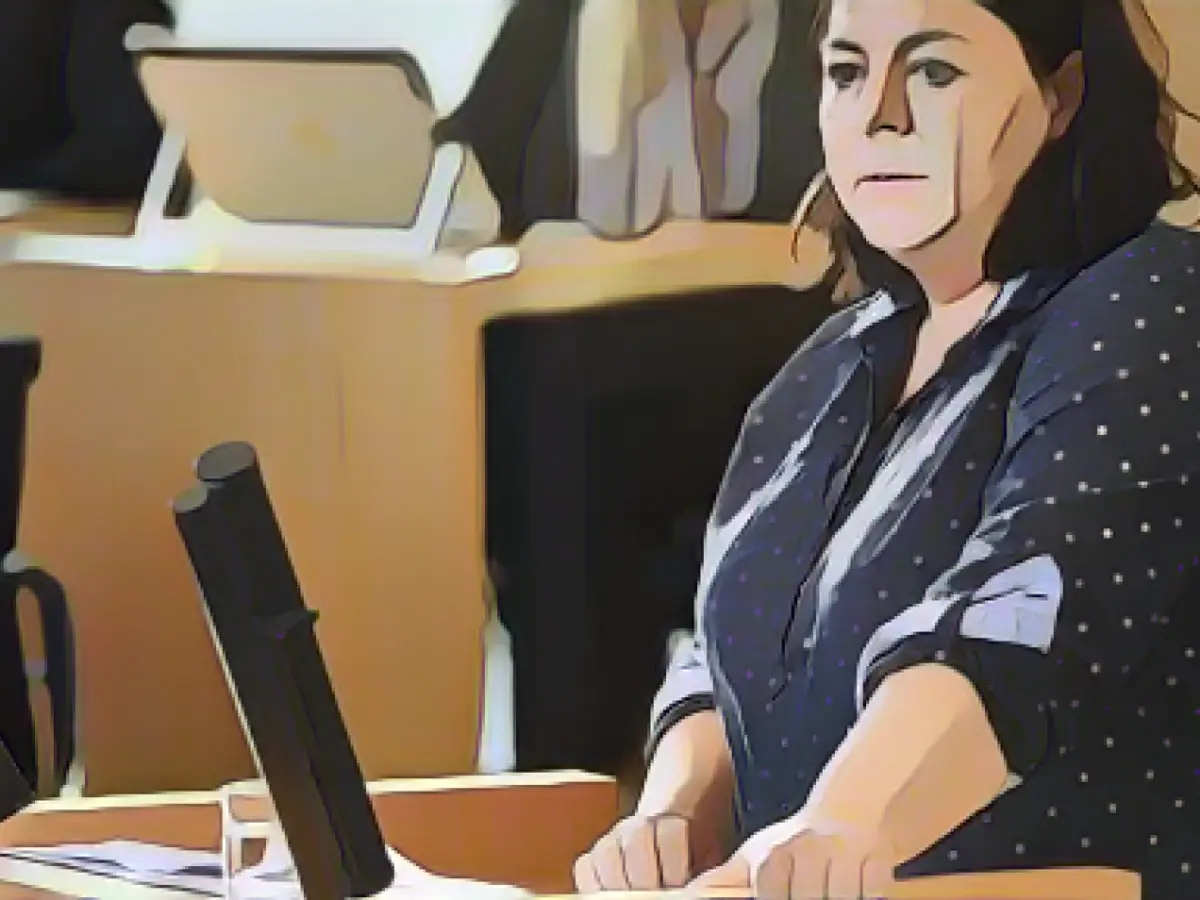CDU's Migration Policy Proposal Sparks Controversy in Thuringia
The proposal to establish deportation centers for rejected asylum seekers by the CDU in Thuringia, Germany, has sparked controversy and heated debates in the state parliament. Green party's parliamentary leader, Astrid Rothe-Beinlich, criticized the idea, calling it "inhumane" and "places of hopelessness".
CDU's Proposal and Left-wing Criticism
The CDU draft, mirroring Bavaria's approach, suggests setting up central asylum facilities for people with little prospect of staying in the country. However, left-wing migration politician Katharina König-Preuss labelled the proposed accommodations as "camps," denouncing the proposal as "inhumane, inhumane, and in part racist".
Stefan Schard, the CDU migration politician, defended the move, maintaining that it aimed to optimize structures due to exhausted capacities in Thuringia's municipalities. He also accused the Left-SPD-Green coalition of failing to manage the crisis effectively, assuming moral principles as their main focus.
The Role of the AfD and the State Parliament
The governing coalition in Thuringia lacks a majority in the state parliament, necessitating support from parties like the AfD. They initially left it open regarding potential voting in favor of the bill, with only a committee referral approved and an eventual decision on bill approval pending after the committee's work.
The AfD's parliamentary group leader, Björn Höcke, acknowledged the proposal's potential to address "mass migration" problems, calling for an end to the influx. He anticipated a compromise might still be possible within the committee work. Katharina Schenk, the State Secretary of the Interior, advocated for critical discussion of the draft in the Migration Committee.
Enrichment Data Insights
The proposal for the deportation center in Thuringia is driven by several factors, including the need to address capacity issues due to the exhaustion of municipal resources and the political context surrounding the CDU's relationship with the far-right Alternative for Germany (AfD). Public protests, internal divisions within the CDU, and Chancellor Olaf Scholz's intervention further highlight the controversy and sensitivity of the issue.
- Despite opposition and controversy surrounding the CDU's deportation center proposal, the governing coalition in Thuringia relies on parties like the AfD for support to pass bills.
- Katharina König-Preuss, a prominent left-wing migration politician, has denounced the CDU's draft as inhumane and racist, arguing that it fails to acknowledge the rights of refugees.
- Stefan Schard, a CDU migration politician, defends the bill, emphasizing the need to optimize structures and address capacity issues in Thuringia's municipalities, regardless of moral ideologies.
- The ruling coalition in Thuringia struggles to maintain its majority in the state parliament, forcing it to work with opposition parties such as the AfD to pass legislation.
- AfD parliamentarian Ringo Mühlmann and Björn Höcke have expressed concerns over migration and mass movement in Thuringia, indicating potential support for the deportation center proposal in committee discussions.
- State Secretary of the Interior Katharina Schenk advocates a critical examination of the draft in the Migration Committee, particularly in regards to the creation of a central immigration authority.
Source:
Enrichment Data Resource:








